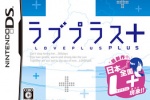Virtual Dating Simulations
Virtual Dating Simulations, also known as dating sims, are a subgenre of adventure games and are modeled after the style of role-playing games that have gained popularity in recent years. In virtual dating simulations, the player gains and develops a romantic relationship with one of the featured characters. Popular in East Asia and Japan, some varieties of these games involve adult content. Virtual dating simulations have been criticized for removing people from real life and there are ethical concerns about the methods or tricks one must use to complete the game.
Contents
Characteristics
Players start by choosing a name and gender for their playable character. They can choose from a set of personality traits and physical attributes to give their character dimension. Users then complete a set of tasks in order to receive points and boosters for their personality statistics, such as attractiveness and intelligence. Characters will show increased or decreased attraction to the player based on decisions they make. Throughout these simulations, time plays a key role by helping to determine when specific events will occur as well as control the energy status of the player. Players are able to develop a storyline from their actions. They can then become friends with characters that they are not romantically pursuing. Rivalries and conflict come into play in most dating simulations, making them more realistic.
Styles
Linear
Linear games have a set storyline and the least amount of game play. Within dating sims, linear games are most prevalent as visual novels. These games focus more on a storyline, and value dialogue over player mobility. Players have set actions and cannot explore different areas of the game. There are almost no statistics in these games, so a player’s ability to gain a relationship with a character is based solely on their answers to specific questions asked by the game characters. While being linear, these types of games do come with multiple different endings that give the game some form of diversity in addition to the different characters the user can pursue.
A popular game in this style is Surviving High School.
Nonlinear
Nonlinear, or open world games, give players the freedom to customize their playable character and more regions to explore. They also have multiple ways to boost statistics through mini games and regular actions. More strategy is required for nonlinear dating simulations; there are multiple "correct" answers to questions, and the player's actions play a very large role in determining who the player ends up with. These games also have multiple possible endings. Recently, new features such as real time game play as well interactive character settings allow for more realistic portrayals of romantic relationships between users and their game characters. Having time correlate with reality allows for different types of interactions and events to occur during either night or day. Also, special events occur on exact holidays. Settings such as enabling microphone technology to sing and speak to virtual characters allows for more physical interaction.[1]
Popular examples of this style ranges from the extreme like in Second Life where players have the freedom to do whatever they choose and there are no limitations, to the more controlled, like in Star Ocean, Persona series, and Harvest Moon.
Popularity
Dating simulations are especially popular in East Asia, and many of these games are created by Japanese developers. A major difference between dating sims in Asia and the United States is that in Asia, visual novels are more prevalent and are considered more romantic and complex.[2] Their Western equivalent would be interactive, computerized versions of romance novels.
A well known Nintendo DS game known as Love Plus+ was released on July 10 for males. A specific aspect of this new game is focused on the ability of the user to spend real money over the game to treat their virtual dates. The game’s setting is based off the real resort town, Atami, Japan. Overall, the trips to this town over the Nintendo DS internet service costs actual money, and can be expensive. Yet, it is meant to imitate real life vacations. Other realistic options in the Love Plus+ series include the synchronization of an actual calendar and clock. Thus, time also determines when the virtual girls are available, and birthdays and holidays are essential dates to remember. Overall, this game attracted 1,500 users within the first month of promotions. In addition, sales of restaurants and shops on the real resort town in Atami have increased due to the popularity of the game. Many players actually choose to take a vacation to the real town in order to play their games in its “legit” location, increasing the romantic feeling associated with the game.[1]
In 2008, another Japanese dating simulation, "Webkare," or "web boyfriend" became popular. This web-based game geared towards females gained over 10,000 players just five days after its release on September 10, 2008, receiving around 3.5 million page views. Webkare blends social networking and a dating simulation by having players work with other players in order to advance in the game. The game also includes tweeting and status updates of players relationships. Webkare is free-to-play with display ads and affiliate links being the main source of revenue for the company. Future ideas of expanding the game include transforming it into a video game or dream novel, selling merchandise, creating cell phone apps of it, or adding premium features for paid users.[3]
18+ Adult Games
The birth of dating sims originally came from popular adult games back in the 1980's like "Night Life" and “Lolita Syndrome”. In these versions as well as many adult games in today's era, players can have romantic and sexual relationships with game characters. These games generally fit under the category of H Games. They are usually made by private companies in Japan and are only available on the PC. They occasionally feature censorship, and are purchasable to individuals 15+ in Japan and 18+ in the US. The main reason for a restricted PC-only platform is centered around public disapproval and cost. Additionally, corporate companies are unlikely to take major risks in developing sexually explicit games due to the high cost and limited amounts of users.[4] However, a benefit of having these games on a PC platform is that they are generally much cheaper since the images are 2D and static. Francesco Fondi, 37, who founded Play X in Italy in 1998, the first magazine outside of Japan dedicated to dating sims states, “The games are cheap ways to experiment with new stories.”
Criticism and Reception
While there are positive reviews for the creativity and original game play of certain dating sims, there are many arguments against them. Critics generally argue that dating simulations detach people from reality. Instead of going out and meeting people in real life or on dating sites, the introverted and lazy can escape through dating sims. They can also cause people to hold unrealistic expectations of romantic partners. This separation from reality is considered unhealthy by many, and is seen as degrading principles and morals due to the explicit games available within this genre.[5]
On recent studies done in 2008, comparing virtual and reality relationships and dating, many participants agreed that while virtual environments and simulations allow for diverse relations, there is still much to be desired. The first study revealed that individuals prefer offline, real relationships over games and internet relations since the latter has less rewarding real world payoffs. The second study claimed that virtual interactions rarely provide enough experience for users to apply in real-life situations.[6]
Some women critically acclaim that these types of games are unnecessary and are seen as an inability to cope and speak for themselves in the reality.[7]
Others say that role-playing games are learning experiences. They argue that players are able to judge their morals in these games and usually choose options that fit their ethics and principle. In addition, while there may be consequences in reality, virtual role-play games allow individuals to explore and reason with an open mind, as well as learn from their mistakes in a less demanding environment.[8]
It can also be argued that dating sims are beneficial to the LGBT community, as many games feature same-sex relationships. These games are usually under the title "shojou ai" or "girl's love" and "shonen ai" for "boy's love". Many see it has an opportunity to explore their sexuality or express themselves without scrutinizing glances from the public.
Ethical Concerns
Reality vs. Virtual Reality
Usually, games end by either winning or losing, with the player losing by failing to "finish" off another member of the opposite sex, with the term "finishing" referring to either marriage, having sex, or falling into an eternal love.[9] As some players learn the tricks to most effectively and efficiently win the game (especially in linear models), it can be argued that the line between reality and the online environment will become blurred. This could impact unnatural expectations in dating situations experienced in real life for those players.
Addiction and Over-involvement
There are also many who view these simulations as another type of drug used to curb loneliness and depression. However, as games like Love Plus+ and Webkare become too realistic; as many choose to rely on them to satisfy their social rejection. Users like college student Tatsuya Fukazawa, have admitted that “…there isn’t a lot of romance in my life and this (game) helps me cope with some of the loneliness.”[1] It has been estimated that if a new version of Webkare does appear and achieves its goal of curbing loneliness among users, Japan plans to expand the game to the US and Europe. Similarly for Love Plus+, it can be expected to release in the US if more positive reviews are received. This point of perspective reveals that the need to fulfill fantasies and dreams may become too powerful, to the point individuals may hold a more relaxed view towards unwanted sexual advances.
Virtual Intercourse
The sexual advances involve the ethical concern towards online raping. In regards to rape, the dating simulation industry has had constant struggle with the issue of online rape in their games. Recently on June 2, Japan issued a new list of criteria for judging and terminating explicit games and simulations dealing with rape. This action required nearly 200 companies to change their product lineup.[10] Japan subsequently followed up with propositions detailing the overall banding of underage pornography, including animated forms.Foreign nations like the US supported this action in regards to a belief that dating simulations are seen as an open door for those seeking child pornography.[4]
Rape
While rape is explicit and socially unacceptable, distributors of the games have fought back by making their online downloadable content only accessible in Japan to avoid issues with foreign laws. Supporters have stated that while rape is unacceptable, statistics have not shown that rape in games have any effect on reality. Japan is ranked #54 in the world for rape. If the problem was prevalent, lawmakers in Japan would have taken swift action in outlawing such games.[10] However, the gamers in the USA have argued that withholding the printing and distribution of these types of games is a direct impingement of freedom of speech and promotes censorship.[4]
See Also
- Online Dating
- Virtual Child Pornography
- Virtual Environment
- Virtual Reality and Computer Simulations - Philip Brey
- Women in Gaming
References
- ↑ 1.0 1.1 1.2 Wakabayashi, Daisuke. "Only in Japan, Real Men Go to a Hotel With Virtual Girlfriends" Wall Street Journal. Retrieved 17 Dec. 2011 http://online.wsj.com/article/SB10001424052748703632304575451414209658940.html
- ↑ "Visual Novels: A Cultural Difference Between The East And West." Siliconera. Retrieved 4 Oct. 2011 http://www.siliconera.com/2011/02/17/visual-novels-a-cultural-difference-between-the-east-and-west/ Ishaan.
- ↑ Toto, Serkan. "Japanese Girl Sensation: Virtual Boyfriends (Webkare)" TechCrunch. Retrieved 5 Oct. 2011 http://techcrunch.com/2008/09/20/webkare-a-girls-only-combination-of-social-network-and-dating-game-from-japan/
- ↑ 4.0 4.1 4.2 Japan Today: Japan News and Discussion: Galbraith W, Patrick. "Dating simulator games inspire legion of followers—and detractors". Retrieved 17 Dec. 2011 http://www.japantoday.com/category/lifestyle/view/dating-simulator-games-inspire-legion-of-followers%E2%80%94and-detractors
- ↑ "The Missing Human Connection" Genius Coaching - Great to Significant. Retrieved 5 Oct. 2011 http://www.geniuscoaching.com/blog/2011/06/the-missing-human-connection/
- ↑ Frost J.H, Chance Z., Norton M.I., Ariel D. (2008). People are experience goods: Improving online dating with virtual dates. Journal of Interactive Marketing (51-61). Wiley Periodicals, Inc. and Direct Marketing Educational Foundation, Inc
- ↑ Royse, Pam, Joon Lee, Baasanjav Undrahbuyan, Mark Hopson, and Mia Consalvo. "Women and games: technologies of the gendered self." New Media Society 9 (2007): 566-572.
- ↑ Simkins, David W., and Constance Steinkuehler. "Critical Ethical Reasoning and Role-Play." Games and Culture 3 (2008): 338-342.
- ↑ Wikipedia: Dating Sim http://en.wikipedia.org/wiki/Dating_sims
- ↑ 10.0 10.1 Rice, Brian. "Japan Bans Rape Games. All of Them" Destructdoid. Retrieved 17 Dec. 2011.



